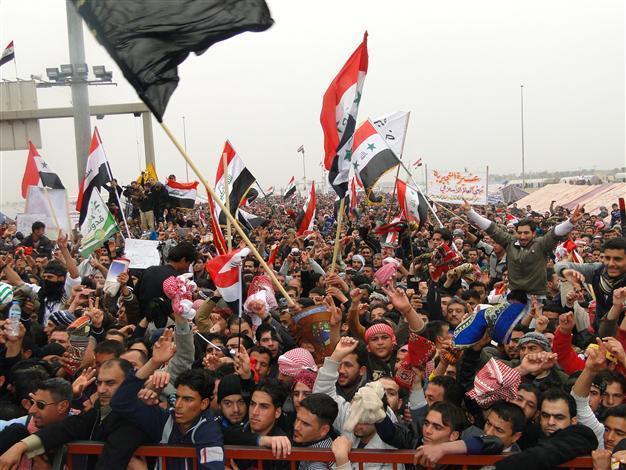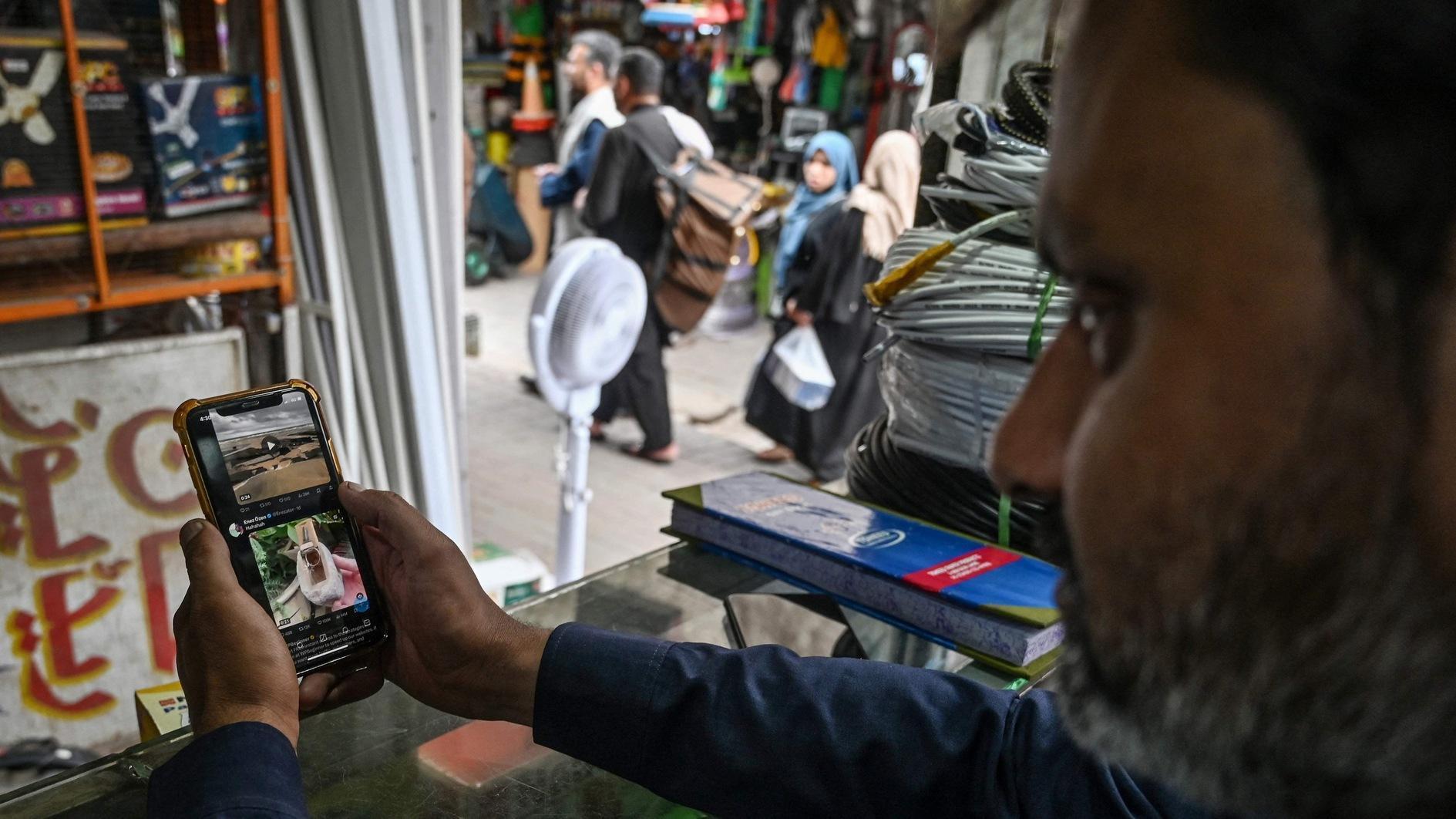Army kills six as Iraqi protesters call for PM to quit
FALLUJAH, Iraq - Agence France-Presse

Anti-government protesters gather in the western Iraqi city of Ramadi on January 25, 2013. AFP Photo
Six demonstrators were killed and 35 were wounded when soldiers opened fire west of Baghdad as tens of thousands rallied in Sunni-majority areas calling for Iraq's Shiite leader to quit today.The deaths were the first at the hands of the security forces since massive protests began in mainly Sunni Arab areas of Iraq more than a month ago, railing against the alleged targeting of their minority community by Shiite-led authorities.
The demonstration in Fallujah, 60 kilometers west of Baghdad, was one of several that began after Friday prayers across the country, while Shiite clerics called on the government to heed their demands.
Protesters had been moving to an area in east Fallujah but were blocked off by soldiers deployed from Baghdad, Fallujah police captain Nasser Awad told Agence France-Presse. They began throwing bottles of water at the troops, who then opened fire.
Six demonstrators were killed, all of them from gunshot wounds, said Khaled Khalaf al-Rawi, a doctor at Fallujah hospital. Al-Rawi said 35 others were wounded, the majority of them as a result of gunfire.
Saadun Shaalan, a provincial councillor in Anbar, which surrounds Fallujah, said the army had been ordered to vacate the town and transfer security responsibility to the police.
Mosques in Fallujah used loudspeakers to call for calm, and security forces imposed a curfew across the town.
Similar demonstrations, meanwhile, took place in the nearby city of Ramadi, like Fallujah a mostly Sunni town in the western province of Anbar, as well as the cities of Samarra, Mosul and Baquba, all north of Baghdad.
Rallies also took place in Sunni neighbourhoods of the capital.
The longest-running of the protests, in Ramadi, has cut off a key trade route linking Baghdad to Jordan and Syria for a month.
"The government should respond immediately to the demands of protesters, before we start a revolution and put an end to [the government]," said Hassan al-Zaidi, a tribal chief who was protesting in Baquba.
Demonstrators in Samarra held banners calling for Prime Minister Nouri al-Maliki to quit, while protesters in Baquba called for the "fall of the regime" and held banners that read, "Iran out, Baghdad always free," referring to Sunni claims that the government is controlled by Shiite neighbor Iran.
Rallies also called for freeing prisoners who demonstrators allege are being wrongfully held, with one banner in Mosul reading, "Enough talk -- break the doors of the prisons."
Shiite clerics, meanwhile, called for the government to heed demonstrators' demands.
"There must be agreement with the demands," Sadr al-Din al-Qubanji, linked to the Supreme Iraqi Islamic Council political bloc, said in his Friday sermon in the holy Shiite city of Najaf, south of Baghdad.
"Nobody can say that the government is clean from errors." If the authorities did not work to address protesters' demands, Qubanji warned, "There is another way, which can [bring down] the entire political process in Iraq."
The protests have hardened opposition against al-Maliki and come amid a political crisis less than three months ahead of key provincial elections.
Demonstrators began by criticising the alleged exploitation of anti-terror laws to detain Sunnis wrongfully, but have since moved on to calling for the premier to quit.
The government has sought to curb the rallies by claiming to have released nearly 900 prisoners in recent weeks, with a senior minister publicly apologizing for holding detainees without charge.
















